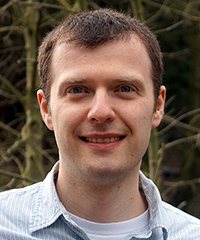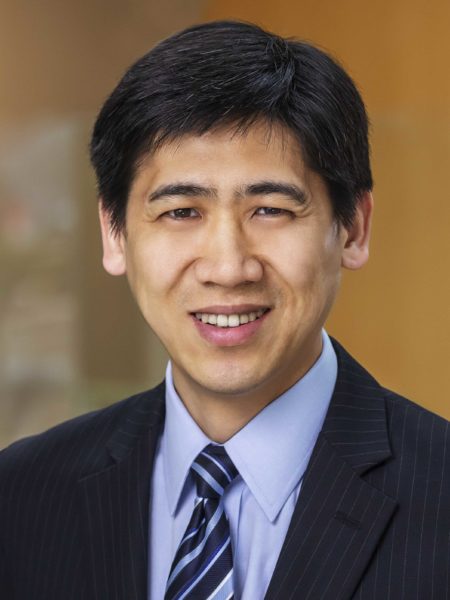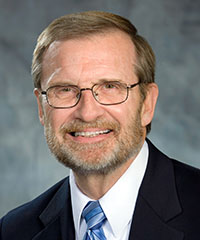speakers
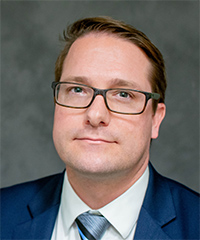
David Babson
Program Director, Advanced Research Projects Agency – Energy
U.S. Department of Energy
David Babson is a program director for the Advanced Research Projects Agency – Energy (ARPA-E) at the U.S. Department of Energy (DOE), where he focuses on bioenergy, agriculture, and carbon dioxide (CO2) management systems innovation. Before joining ARPA-E, Babson was the senior advisor for renewable energy, natural resources, and the environment to the chief scientist at the U.S. Department of Agriculture. He led research and development coordination efforts on carbon management, climate resiliency, sustainability, agricultural systems innovation, bioenergy, and biotechnology. Prior to that role, he was a technology manager in DOE’s Bioenergy Technologies Office (BETO), where he oversaw projects for its Conversion Program and worked to understand how to leverage new technologies to advance the emerging bioeconomy and address global energy challenges and climate change.
Prior to joining the DOE, Babson worked as a senior fuels engineer at the Union of Concerned Scientists and as an American Association for the Advancement of Science (AAAS) Science and Technology Policy Fellow at the U.S. Environmental Protection Agency. He held postdoctoral appointments at the University of Minnesota’s Biotechnology Institute and the U.S. Naval Research Laboratory. He has a Ph.D. in chemical and biochemical engineering from Rutgers University and a B.S.E. in chemical engineering from the University of Massachusetts Amherst.
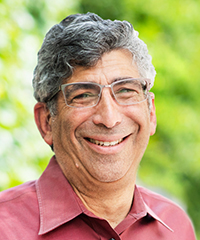
 Andrew Bocarsly
Andrew Bocarsly
Professor of Chemistry
Andrew Bocarsly received his B.S. jointly in chemistry and physics from UCLA in 1976, and his Ph.D. in chemistry from Massachusetts Institute of Technology (MIT) in 1980. He has been a member of the Chemistry Department faculty for 39 years and is affiliated with Princeton University’s Institute for the Science and Technology of Materials (PRISM), Princeton Environmental Institute, and the Andlinger Center for Energy and the Environment. Bocarsly has published over 225 papers in peer-reviewed journals and co-authored over a dozen patents. His research is focused on electrochemistry and photoelectrochemistry for the conversion of carbon dioxide to organic fuels and feedstocks; new materials for electrochemistry; cyanogel sol-gel processing; and molecule-based multielectron photoinduced charge transfer processes.
Bocarsly serves as a consultant and contractor to various alternate energy companies. He co-founded Liquid Light Inc., a company formed to commercialize the formation of organic commodity chemicals from carbon dioxide using alternate energy sources. He has received an Alfred P. Sloan Fellowship, the Sigma Xi (Princeton Section) Science Educator Award, and the American Chemical Society-Exxon Solid State Chemistry award. He has served on the advisory board for the Journal of Physical Chemistry Letters, has edited a volume for Structure and Bonding in the area of fuel cells and batteries, and served as the electrochemistry editor for Methods in Materials Research. He currently sits on the editorial advisory board of Journal of CO2 Utilization, and the international advisory board of the International Conference on Carbon Dioxide Utilization. He is a fellow of the American Scientific Affiliation.
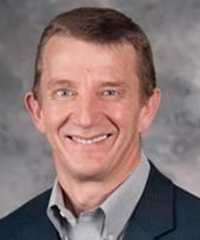
 David Eaglesham
David Eaglesham
Entrepreneur-in-Residence
Breakthrough Energy Ventures
David Eaglesham is an entrepreneur-in-residence at Breakthrough Energy Ventures, the investment arm of Breakthrough Energy. Breakthrough Energy aims to develop energy technologies to enable a high standard of living globally without contributing to climate change, and is backed by Bill Gates, Jeff Bezos, Richard Branson, Michael Bloomberg, among others. Eaglesham has over three decades of experience developing and commercializing technologies. Eaglesham was the CEO of Pellion Technologies, a Boston-based start-up that commercialized a 1,000Wh/l next-generation battery. In his early career in 1988, he joined Bell Labs, where he worked on semiconductor deposition techniques and doping, and became director of electronic device research. Eaglesham later worked at Lawrence Livermore National Laboratory as chief technologist and at Applied Materials as director of advanced technologies. He was the chief technology officer of First Solar, a global provider of photovoltaic solar systems, where he helped grow revenues from $50 million to $3.5 billion. He is a fellow of the American Physical Society. He was named Outstanding Young Investigator by the Materials Research Society (MRS) in 1994, and was MRS president in 2005. Eaglesham earned a Ph.D. in physics from the University of Bristol and achieved tenure as a lecturer at Liverpool University.
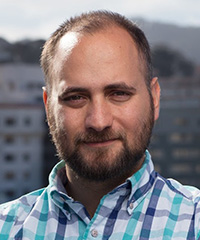
 Saman Farid
Saman Farid
Partner, Head of US Team
Baidu Ventures
Saman Farid is a passionate supporter of early-stage startups. He has built three companies in the areas of e-commerce, IP television, and logistics management, and faced the challenges of building, focusing, and scaling a company. After two exits, Farid started Comet Labs, a fund and incubator focused on AI and machine learning, through which he invested in nearly 50 companies such as Airmap, Ripcord, Abundant Robotics, Cobalt Robotics, 3Scan, Saleshero, Otosense, and more.
Farid now leads U.S. investments at Baidu Ventures, where, in additional to capital, he is leveraging Baidu Ventures’ considerable resources in data-sets, technical talent, and domain expertise in an effort to turbocharge the companies in which he invests. Farid previously spent 15 years in China, and has held positions at Honeywell, Verizon, Deloitte Consulting, and Microsoft in roles ranging from research and development to operations optimization. He received a B.S.E. from The Cooper Union and a M.B.A. from Tsinghua University and MIT.
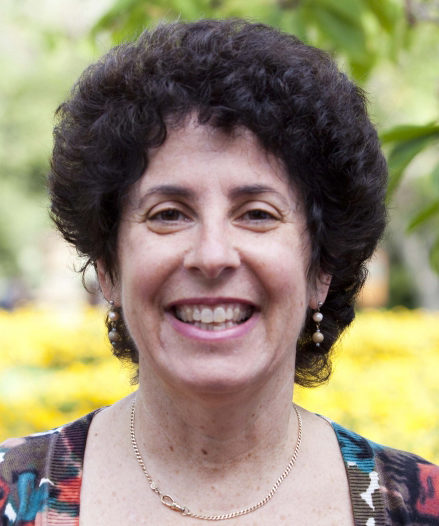
 Judi Greenwald
Judi Greenwald
Principal, Greenwald Consulting, LLC
Non-Resident Fellow, Andlinger Center for Energy and the Environment
Judi Greenwald is the principal of Greenwald Consulting, LLC, providing energy and environmental expert advice, strategic planning, and policy analysis to clients. Greenwald has over 35 years of experience working on energy and environmental policy. In 2018, she was an inaugural Gerhard R. Andlinger Visiting Fellow in Energy and the Environment, and now continues her involvement as a non-resident fellow. Until 2017, Greenwald was the deputy director for climate, environment, and energy efficiency in the U.S. Department of Energy’s (DOE) Office of Energy Policy and Systems Analysis. In this capacity, she oversaw technical, economic and policy analysis related to climate mitigation and resilience, environmental protection, and energy efficiency. Greenwald also served as the senior climate advisor to the Secretary of Energy. Prior to joining the DOE, Greenwald worked for 14 years at the Center for Climate and Energy Solutions (formerly the Pew Center on Global Climate Change), and served on the professional staff of the U.S. Congress Energy and Commerce Committee.
Throughout her career, Greenwald served in advisory roles at numerous governmental and non-governmental organizations, including the Electric Power Research Institute, the Regional Greenhouse Gas Initiative, the California Market Advisory Committee, the Western Climate Initiative, the Midwest Greenhouse Gas Accord Advisory Group, and the White House Climate Change Task Force. Greenwald received a B.S.E. cum laude from Princeton University, and an M.A. in science, technology and public policy from The George Washington University.

Audrey Lee
Vice President, Energy Services
Sunrun
Audrey Lee is vice president of energy services at Sunrun, where she deploys and aggregates home solar, batteries, and other energy services to serve residential customers, utilities, and grid operators in creating a more affordable, clean, reliable electricity grid. She leads grid services, advanced product, and data science teams at Sunrun. She also serves on the National Institute of Standards and Technology’s Smart Grid Advisory Committee.
Previously, Lee built the analytics and operations platform at Advanced Microgrid Solutions to optimize a 50 MW fleet of customer-sited batteries as a virtual power plant in Southern California. Prior to that, Lee led policy and analysis at the California Public Utilities Commission President’s office, Harvard University, U.S. Department of Energy, and the International Energy Agency. She holds a Ph.D. in electrical engineering from Princeton University and a B.S. in applied physics from Caltech.
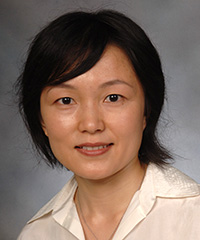
Qilin Li
Professor of Civil and Environmental Engineering, Chemical and Biomolecular Engineering, and Materials Science and Nanoengineering, Rice University
Qilin Li is a professor of civil and environmental engineering, chemical and biomolecular engineering, and materials science and nanoengineering at Rice University. Li received her B.S.E. in environmental engineering from Tsinghua University in Beijing, China, her M.S. and Ph.D. in environmental engineering from University of Illinois at Urbana-Champaign, and her postdoctoral training at Yale University. Her research focuses on advanced technologies for water and wastewater treatment and reuse, environmental nanotechnology, novel desalination methods, environmental fate and transport of contaminants, and environmental impact of nanotechnology.
Li is a Fellow of the International Water Association (IWA), and served as the chair for the IWA Nano and Water Specialist Group Managing Committee. She serves as the associate director for research for the National Science Foundation’s Nanosystems Engineering Research Center for Nanotechnology Enabled Water Treatment (NEWT), as associate editor of Water Research, and as a member of the Environmental Engineering Committee of the U.S. Environmental Protection Agency’s Science Advisory Board. She also serves on the editorial board of Frontier of Environmental Science and Engineering.
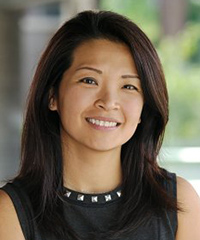
Yueh-Lin (Lynn) Loo
Director, Andlinger Center for Energy and the Environment
Theodora D. ’78 and William H. Walton III ’74 Professor in Engineering
Professor of Chemical and Biological Engineering
Yueh-Lin (Lynn) Loo is director of the Andlinger Center for Energy and the Environment and the Theodora D. ’78 and William H. Walton III ’74 Professor in Engineering. Her research interests lie in developing and deploying clean energy technologies. In her lab, Loo processes and develops materials for lightweight and flexible solar cells. She has developed a self-powered “smart” window and co-founded a startup, AndlucaTechnologies, to commercialize the technology to decrease energy consumption and increase occupant comfort in buildings.
Loo received her Ph.D. from Princeton University, and joined the faculty in 2007 after starting her career at the University of Texas at Austin. As the associate director of external partnerships at the Andlinger Center, she launched and led Princeton E-ffiliates Partnership.
Loo is the author of over 170 publications, has delivered more than 200 invited and plenary lectures globally, and serves on numerous international advisory boards. She is a fellow of the American Physical Society, a young global leader of the World Economic Forum, and a strategic advisor for NewWorld Capital Group. Her scholarly work has been recognized by numerous accolades, including Sloan and Beckman Fellowships, the John H. Dillon Medal from the American Physical Society, and the Alan P. Colburn Award from the American Institute of Chemical Engineers.

Jeff Moeller
Research Unit Leader
The Water Research Foundation
Jeff Moeller serves as a research unit leader at The Water Research Foundation (WRF) where he has worked since 1997. He directs two of the foundation’s four research units – Source and Receiving Waters, and Infrastructure. Prior to this role, Moeller served as WRF director of water technologies, where he managed the Leaders Innovation Forum for Technology (LIFT) Program. LIFT is a program that aims to accelerate innovation and put new technology into practice in the water industry.
Moeller has over 20 years of experience and previously worked as an engineer for Hazen and Sawyer designing water, stormwater, and wastewater systems. He has worked on water projects in the Mid-Atlantic and Southeastern United States, as well as internationally for Inter-American Development Bank-funded projects in Central America. He has led several major WRF research programs in wastewater, stormwater, decentralized systems, and sustainable integrated water management. He specializes in managing research and development, demonstration, and deployment of new water and wastewater processes and technologies. Moeller is currently the principal investigator for a U.S. DOE-funded project titled, “Hydrothermal Processing of Wastewater Solids (HYPOWERS).”
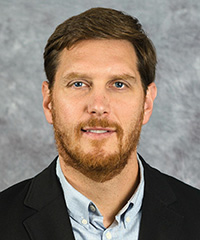
Gregory Nemet
Professor of Public Affairs, La Follette School of Public Affairs
University of Wisconsin-Madison
Gregory Nemet is a professor at the University of Wisconsin–Madison in the La Follette School of Public Affairs. He teaches courses in energy systems analysis, policy analysis, and international environmental policy. Nemet’s research focuses on understanding the process of technological change and the ways in which public policy can affect it. He received his Ph.D. in energy and resources from the University of California, Berkeley. Nemet earned his B.A is in geography and economics from Dartmouth College. He received an Andrew Carnegie Fellowship in 2017 and used it to write a book on how solar PV provides a model for low-carbon innovation: “How Solar Energy Became Cheap” (Routledge 2019).
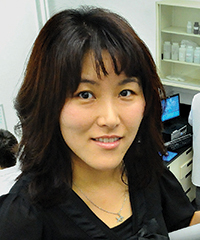
Ah-Hyung (Alissa) Park
Lenfest Chair in Applied Climate Science
Director of Lenfest Center for Sustainable Energy, The Earth Institute
Associate Professor, Department of Earth and Environmental Engineering and Department of Chemical Engineering, Columbia University
Ah-Hyung (Alissa) Park is the Lenfest Chair in Applied Climate Science of Earth and Environmental Engineering and Chemical Engineering at Columbia University. She is also the Director of the Lenfest Center for Sustainable Energy at The Earth Institute. Her research focuses on sustainable energy conversion pathways with emphasis on integrated carbon capture, utilization and storage (CCUS). Current efforts include the fundamental studies of chemical and physical interactions of natural and engineered materials with CO2, such as the development of novel nano-scale hybrid materials for integrated CO2 capture and conversion.
Park earned bachelor’s and master’s degrees in chemical and biological engineering from the University of British Columbia, and a Ph.D. in chemical and biomolecular engineering from The Ohio State University. Park received a number of professional awards and honors including an NSF CAREER Award in 2009 and James Lee Young Investigator Award in 2010. In 2017 and 2018 she was recognized with the American Chemical Society WCC Rising Star Award, Janette and Armen Avanessians Diversity Award at Columbia University, International Partnership Award for Young Scientists of Chinese Academy of Sciences, the American Chemical Society Energy and Fuels Division’s Emerging Researcher Award, PSRI Lectureship Award in Fluidization at the American Institute of Chemical Engineers, and U.S. C3E Research Award. Park was also the chair of the CO2 utilization area for the Mission’s Innovation Workshop on Carbon Capture, Utilization and Storage in September.
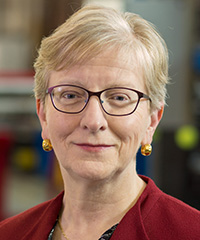
Gay Wyn Quance
CEO and Co-founder
Solid Carbon Products, LLC
Gay Wyn Quance is the CEO and co-founder of Solid Carbon Products LLC, which makes carbon dioxide profitable by converting it into valuable, durable carbon products and pure water through a patented, low cost, catalytic converter process – the Noyes Process. This changes the economics of CO2 mitigation from a cost burden to a profit stream. Being able to profitably deploy CO2 as a feedstock means that the economics of carbon capture can be driven by profit. The Noyes Process is net carbon negative, and provides a positive environmental impact.
Quance has over 30 years of experience working with technology platforms and applications in the electric, gas, and water utilities markets. She implemented large-scale smart grid deployments for electrical utilities, enterprise resource management applications for nuclear power generating stations, and aluminum and paper manufacturers. She graduated with honors from Carleton University with a Bachelor of Science in chemistry and geology.
Barry Rand
Associate Director for External Partnerships
Associate Professor of Electrical Engineering and the Andlinger Center for Energy and the Environment
Barry Rand is an associate professor of electrical engineering and the Andlinger Center for Energy and the Environment. Rand earned a B.S.E. in electrical engineering from The Cooper Union in 2001 and received M.A. and Ph.D. degrees in electrical engineering from Princeton University, in 2003 and 2007, respectively. From 2007 to 2013, he was at imec in Leuven, Belgium, ultimately as a principal scientist, researching the understanding, optimization, and manufacturability of thin-film solar cells. He has been a faculty member in the Department of Electrical Engineering and Andlinger Center for Energy and the Environment at Princeton University since 2013, and is currently an associate professor.
Rand’s research interests highlight the border between electrical engineering, materials science, chemistry, and applied physics, covering electronic and optoelectronic thin-films and devices. He has authored approximately 120 refereed journal publications, has 20 issued U.S. patents, and has received the 3M Nontenured Faculty Award in 2014, DuPont Young Professor Award and Defense Advanced Research Projects Agency Young Faculty Award in 2015, and Office of Naval Research Young Investigator Program Award in 2016.
Jason Ren
Associate Director for Research
Professor of Civil and Environmental Engineering and the Andlinger Center for Energy and the Environment
Jason Ren is a professor of civil and environmental engineering and the Andlinger Center for Energy and the Environment. Ren is recognized as an international leader in environmental bioengineering, with special expertise in energy harvesting from waste streams and in broad research areas linked to the “water-energy nexus.” Ren’s lab analyzes reaction mechanisms and develops processes for energy and resource recovery during environmental processes such as wastewater treatment, environmental remediation, and water desalination. His goal is to expand environmental engineering from pollution clean-up to sustainable development of energy and environmental systems, and to enable a circular economy. Ren received his Ph.D. in environmental engineering from Penn State University.
Phil Sharp
Former member, U.S. House of Representatives
Former chair, Energy and Power Subcommittee
Phil Sharp has a distinguished record across energy and environmental research and policy. During a 20-year congressional tenure as a member of the U.S. House of Representatives from Indiana, Sharp played key leadership roles in the development of landmark energy legislation, including the Energy Policy Act of 1992 and the Clean Air Act Amendments of 1990. After leaving Congress, Sharp was a member of the National Research Council’s Committee on Effectiveness and Impact of Corporate Average Fuel Economy (CAFÉ) standards and he chaired the Secretary of Energy’s Electric Systems Reliability Task Force. Sharp served as president of Resources for the Future from 2005 until 2016, the oldest D.C. think tank focused on environmental, energy, and natural resource issues.
Sharp has held advisory positions at several universities and organizations. He taught at Ball State University, Columbia University, and Harvard University’s Kennedy School of Government, and served as director of Harvard’s Institute of Politics. Sharp served on the board of directors of Duke Energy Corporation, the Energy Foundation, and Electric Power Research Institute. He was appointed to President Barack Obama’s Blue
Ribbon Commission on America’s Nuclear Future and the National Academies’ Committee on America’s Climate Choices. In 2015, Sharp was awarded the James R. Schlesinger Medal for Energy Security by the Department of Energy. Sharp currently serves on the board of directors of Eco-America, The Green Tech Fund, the Bipartisan Action Center, and on advisory boards of Columbia University’s Center for Global Energy Policy, Harvard University’s Institute of Politics, and the MIT Energy Initiative. Sharp earned a bachelor’s degree from Georgetown University’s School of Foreign Service and a Ph.D. in government from Georgetown University.
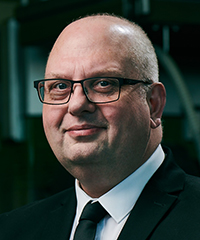
Peter Styring
Director, UK Centre for Carbon Dioxide Utilization
Professor of Chemical Engineering and Chemistry, The University of Sheffield
Peter Styring is a professor of chemical engineering and chemistry and former head of the Department in Chemistry at the University of Sheffield, where he also holds the title of associate fellow in the understanding of politics. His current research spans the whole supply chain in carbon dioxide utilization from chemistry to process development and life cycle and techno-economic analysis through to policy development. Styring was a panel chair and co-author of a CCUS report written by the G20-backed organization, Mission Innovation. He has contributed to a number of policy reports of The Royal Society on carbon capture and utilization, the most recent of which focused on synthetic fuels. He was awarded the 2007 IChemE Hanson Medal.

Mengdi Wang
Associate Professor of Operations Research and Financial Engineering
Mengdi Wang is an associate professor in the Department of Operations Research and Financial Engineering at Princeton University. She is associated faculty of the Andlinger Center for Energy and the Environment and also affiliated with the Department of Computer Science and Princeton University’s Center for Statistics and Machine Learning. Her research focuses on data-driven stochastic optimization and applications in machine and reinforcement learning. She received her Ph.D. in electrical engineering and computer science from MIT in 2013, where she was affiliated with the Laboratory for Information and Decision Systems and was advised by Dimitri P. Bertsekas.
Wang joined the faculty of Princeton University as an assistant professor in 2014. She received the Young Researcher Prize in Continuous Optimization of the Mathematical Optimization Society in 2016 (awarded once every three years), the Princeton SEAS Innovation Award in 2016, an NSF CAREER Award in 2017, the Google Faculty Award in 2017, and the MIT Tech Review 35-Under-35 Innovation Award (China region) in 2018.
